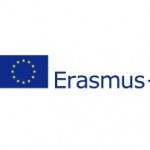Lesson cycle “how to be good parents”
The programme aims at the personal development and self-implementation of parental competences, family relationships and child-raising.
The lesson cycle includes 8 lessons: theoretical exercises, practical exercises, day-to-day analysis. Participants must also perform homework in their family environment, whose results are then discussed in small groups. This is a practical approach to parental training because of the practical methods of raising children, addressing the problems of education and development that parents are faced with on a daily basis.
The main concept of the programme is the efforts to establish a strong relationship between parents and children: emotional raising and positive discipline of children, encouraging, providing support, offering realistic ways of responding positively to a variety of complex situations in children's education, better understanding of their children and themselves in the older role, conscious of their positive resources and learning to use them, raising children, developing emotion self-regulation abilities in themselves and children, and getting satisfaction and joy from parental role, which would create the opportunity for parents to successfully address development and education issues, and feel themselves as happy and persuasive parents.
The programme was developed by: Lily Schodnak, Aija Dundure, Elita Opincane
Lesson 1: Welcome. The self-research of its EU. Identification of the strengths and weaknesses of the personality.
Objective: To foster parents' ability to see the difficulties of their lives and the strengths and weaknesses of their personality
Duration: 2 academic hours (2 x 45 min.)
Expected results:
• a growing sense of husbandry in the parental training group
• parents have an idea of themselves, their self-image;
• Added knowledge of the role of motivation by the choice of life.
Activities: lecture, discussion, design test, group work, feedback
Lesson 2: Family values
Objective: To promote research and prioritisation of their own and family values
Duration: 2 academic hours (2 x 45 min.)
Expected results:
• parents analyze their family values analytically;
• parent-based knowledge of the role of priorities in the choice of life.
Activities: lecture, discussion, group work, feedback.
Lesson 3: The role of parents, the identification and strengthening of their internal resources
Objective: To foster parents' ability to see their roles, responsibilities and responsibilities in raising children, to encourage understanding of the importance and opportunities of change
Duration: 2 academic hours (2 x 45 min.)
Expected results:
• parents will better understand their responsibilities and responsibilities;
• Learn more about how to search and receive support.
Activities: lecture, discussion, group work, feedback.
Lesson 4: Promoting the child's self-awareness
Objective: To promote awareness of the importance of healthy self-awareness in the development of personality and to advise on how to build children's self-confidence.
Duration: 2 academic hours (2 x 45 min.)
Expected results:
• parents will better understand the importance of self-awareness and their role in promoting it or, on the contrary, in destroying;
• parents understand the role of their self-awareness in building a life scenario.
Activities: Minilection, discussion, presentation, group work, feedback.
Lesson 5: How to promote safe engagement in relationships or contact with children and adolescents
Objective: diversifying approaches to positive interaction with children and encouraging mutual trust.
Duration: 2 academic hours (2 x 45 min.).
Expected results:
• parents will be able to recognise and manage emotions;
• Added knowledge of the multi-faceted nature of the contact.
Activities: lecture, discussion, situation modelling, group work, feedback.
Lesson 6. Conflict resolution skills
Objective: To foster parents' ability to analyse the causes of conflict formation between children and parents.
Duration: 2 academic hours (2 x 45 min.).
Expected results:
• parents will better understand the causes of conflict situations;
• parents will learn strategies for constructive conflict resolution;
• parents will develop skills as a change in their behaviour in conflict situations.
Activities: lecture, discussion, group work, role game, feedback.
Lesson 7: Positive Disciplinary Methods
Objective: To learn non-violent child-raising techniques and methods to enable older families to make adequate treatment of children's behavioural difficulties.
Duration: 2 academic hours (2 x 45 min.).
Expected results:
• parents will learn new approaches to children's education;
• The parents will interact with ideas how to create a positive discipline.
Activities: minilection, discussion, work on pairs, group work, situation modelling, feedback
Lesson 8: How to prepare children for life?
Objective: To encourage parents' motivation to change the behavioural and living conditions of children by updating the key skills and skills that the child needs to learn in the family.
Duration: 2 academic hours (2 x 45 min.).
Expected results:
• parents will interact with ideas how to prepare children for life in a rapidly changing world;
• The parents will learn how to promote not only the comprehensive development of the child but also to create a set of optimum attitudes and basic values.
Activities: Minilection, discussion, pairs, feedback.
Project: “hug for the future”
No 2014-1-LV01-KA104-000218
